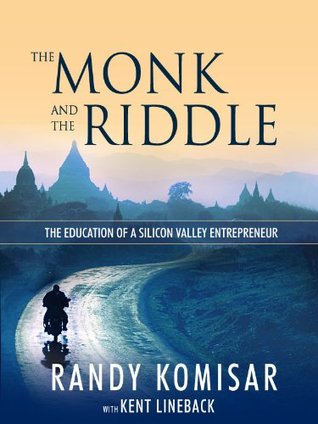More on this book
Community
Kindle Notes & Highlights
pursued a business built around what truly mattered to him, and it failed? What if the world told him, despite his absolute best efforts, that what most inspired his passion wasn't very interesting?
Lenny had been minimizing his exposure and avoiding the real test. He was aiming far too low.
How can I make a difference?
the risk of mediocrity. He had dug his own grave.
the focus here is on maximizing success.
failure is an unavoidable part of the search for success.
We delude ourselves if we believe that much of life and its key events fall under our control.
The rest of the world, egged on by the media, tends to be seduced by the myth, despite the hard work of many others and the role of simple dumb luck.
If you're brilliant, 15 to 20 percent of the risk is removed. If you work twenty-four hours a day, another 15 to 20 percent of the risk is removed. The remaining 60 to 70 percent of business risk will be completely out of your control.
if you're excellent every day, you will have furthered your chances
That should be your primary measure of succe...
This highlight has been truncated due to consecutive passage length restrictions.
entrust your satisfaction and sense o...
This highlight has been truncated due to consecutive passage length restrictions.
base them on the quality of what you do a...
This highlight has been truncated due to consecutive passage length restrictions.
Personal risks include the risk of working with people you don't respect; the risk of working for a company whose values are inconsistent with your own; the risk of compromising what's important; the risk of doing something you don't care about; and the risk of doing something that fails to express—or even contradicts — who you are.
And then there is the most dangerous risk of all — the risk of spending your life not doing what you want on the bet you can buy yourself the freedom to do it later.
I was wrestling with personal risk, a different game of chance in which we have far more control.
if time and satisfaction are precious, truly priceless, you will find that the cost of business failure, so long as it does not put in peril the well-being of you or your family, pales in comparison with the personal risks of not trying to live the life you want today.
Considering personal risk forces us to define personal success.
We may well discover that the business failure we avoid and the business success we strive for do not lead...
This highlight has been truncated due to consecutive passage length restrictions.
Work hard, work passionately, but apply your most precious asset—time—to what is most meaningful to you. What are you willing to do for the rest of your life?
No, what the question really asks is, if your life were to end suddenly and unexpectedly tomorrow, would you be able to say you've been doing what you truly care about today? What would you be willing to do for the rest of your life? What would it take to do it right now?
The question is asking if you're doing something so worthy of your time that you'd invrst your life's time on it. How worthy of your time is the job or thing you're about to do for a considerable amount of time? This is a question about the value of time and work
Time is the only resource that matters.
Try to answer as many of the questions as you can, but don't worry that you won't have all the answers.
Plan how you will discover them.
Competitors could try to duplicate this model, but once Circle-of-Life.com established itself at the center of the network, competitors would find it difficult to dislodge. This scenario is referred to as the much-coveted “network effect,” an increasing return on the benefits of growing scale on the Internet with little or no marginal cost.
here the risk was in the right place — in the execution of the big idea.
They had made assumption after assumption
but the plan also laid out a timetable that identified both the crucial steps and what they hoped and expected to learn at each stage. They were candid and detailed about what they didn't and couldn't know at this point, and they identified how they would refine and reshape the plan as they continued to educate themselves about the market.
The plan was a reliable compass, as it should be, not a road map.
the plan communicated a stronger vision, an idea with a wider horizon focused on meeting a critical need.
I worried they were seeing Frank a little too early. They had so many ideas that still needed winnowing, refinement, and integration. Focus and organization would be key, as it is in all startups. They would need help strategizing and prioritizing.
WHEN ALL IS SAID AND DONE, the journey is the reward. There is nothing else. Reaching the end is, well, the end. If the egg must fall three feet without a crack, simply extend the trip to four.


